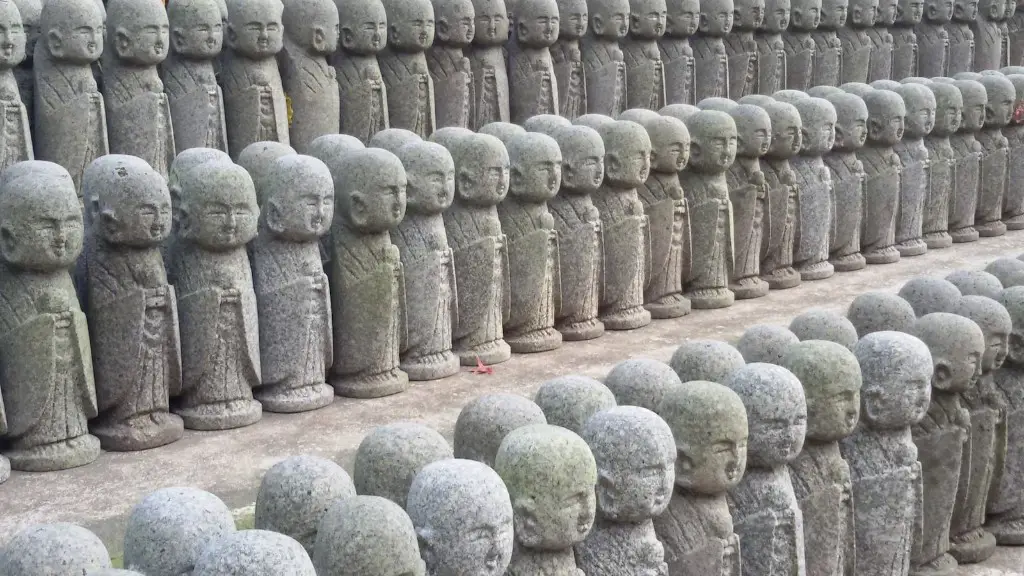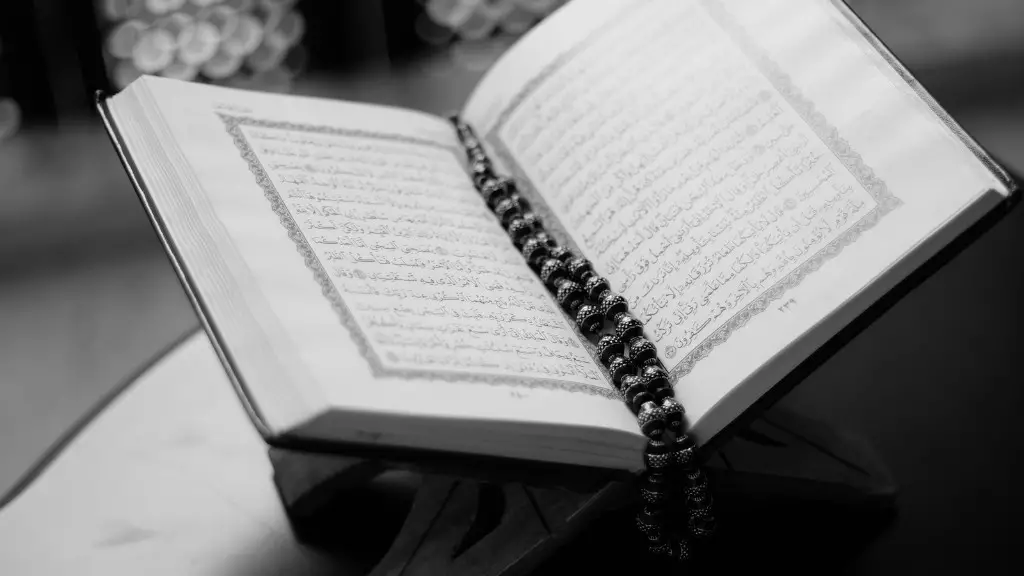Hinduism & The Creation Of The Universe
Hinduism is one of the oldest systematic religions in the world, dating back over 5,000 years, and the belief in the creation of the universe is a major part of it. Hindus believe that the universe was created out of nothingness, by God. There are many stories throughout Hindu mythology discussing the process of creation, and different interpretations of how it occurred.
One of the most well known stories of world creation in Hinduism is found in the Rig Veda, the oldest scripture of Hinduism. According to the Rig Veda, God manifested himself in the form of ‘Cosmic Man’ who created the entire universe from a single seed of energy. In this energy was all of the elements in the universe and from this energy, the universe was born.
It is also believed that the universe in its entirety is but a small part of a larger reality, which is the infinite form of divine energy that both creates and sustains the universe. This infinite form of energy is known as Brahman and it is believed to exist even after the destruction of the universe.
The idea of a creative force is deeply embedded in Hinduism, with many Hindu gods associated with the creation of the universe. The three main Hindu gods associated with the creation of the universe are Brahma, Vishnu, and Shiva, each with their own unique characteristics. Brahma is known as the creator of the universe, Vishnu is the one who preserves and sustains it, and Shiva is responsible for its destruction and eventual re-creation.
While the concept of a creative force such as a divine being is found in Indian mythology, the concept of creation in Hinduism does not necessarily require a God. Hindus believe that the universe has always existed, in the form of infinite Brahman, and that the current physical universe is just a manifestation of that energy.
The creation story in Hinduism teaches us many important lessons about our own place in the universe and the ways in which we should interact with the environment around us. It instills a sense of awe and respect for the power of nature, and encourages us to seek knowledge and wisdom in order to live in harmony with it.
Evolution of Hinduism
Hinduism has seen many changes over the centuries and the relationship between humanity and the divine has also evolved. The concept of a creator god in Hinduism began to shift from the Vedic period to the medieval period and to the modern period, where emphasis was placed more on devotion to deity and less on the idea of a creator god.
The idea of a creator god is still part of Hinduism, though the concept has now become more specific and personalized with deities such as Shiva, Vishnu, and Brahma having different areas of responsibility regarding the creation and sustenance of the world. Additionally, there are localized Hindu gods that are believed to be responsible for specific parts of the creation process.
The emergence of devotional theism has had a great influence on the evolution of Hinduism and the creation story in Hinduism. Devotional theism has been a major force in structuring and defining the religious life of Hindus for centuries, with many participating in festivals, rituals, and prayers dedicated to the different gods associated with the creation process.
Devotion to the divine has also been a source of inspiration for many Hindus and their spiritual journey. Scriptures such as the Bhagavad Gita and the Ramayana emphasize the importance of devotion in achieving spiritual transformation and enlightenment.
Through devotional practices, Hindus learn to accept their place and purpose in the world, and to recognize the divine presence in all aspects of life, thus deepening their understanding and appreciation for the divine creation.
Nature Of Hinduism
Hinduism is a religion that is based on many levels of understanding and at the core, believes in reincarnation and the unity of all creation. It is a religion that encourages us to find the divine within us, and to strive to live a compassionate and ethical life in order to avoid suffering and find liberation and enlightenment. Hinduism also emphasizes the importance of living in harmony with nature and respecting the fact that all living beings are connected in an infinite cycle of birth, death and rebirth.
The idea of a creative force is central to Hinduism and is one of the important aspects of Hindu philosophy. Hindus believe that an ultimate reality, which is the eternal, divine energy known as Brahman, is the basis of creation and that it is the same energy that animates and sustains all life. Thus, Hindus believe that being aware of this ultimate reality can bring us closer to the divine and to finding our true nature.
Hinduism is a complex religion that has many aspects, but a common thread between them all is the importance of recognizing the power of the divine in all aspects of life. Hindus believe that the universe was created out of nothingness and from this divine energy and that the power of creation is still within us, empowering us to seek knowledge, wisdom and oneness with the divine.
Different Interpretations of Hinduism
Hinduism has many different interpretations and each individual Hindu may have their own version of the creation story. Different sects of Hinduism place emphasis on different aspects of Hindu philosophy, so the interpretation of creation will vary according to the sect one follows. Some sects place more emphasis on devotional theism while others will focus more on philosophical aspects of the religion.
Many Hindus believe that the story of the creation of the universe is not meant to be taken literally, but rather symbolically. The symbolism of the creation story is believed to be a way of understanding the relationship between the human experience and the divine. Hindus believe that the universe was created out of nothingness and this is taken to mean that we should strive to find our true nature, or divine essence within ourselves.
Hinduism has provided us with many stories and interpretations of the creation of the universe, but ultimately, it is up to each individual to decide on the meaning and significance of these stories for their own lives. Although Hinduism is a religion with many different interpretations, all Hindu philosophies point to the same goal: liberation from suffering and a return to oneness with the divine.
Influence of Hinduism on the World
Hinduism has had a profound influence on other philosophies, religions and cultures around the world. The concepts of reincarnation, Karma, dharma, and the importance of living in harmony with the divine are just a few of the many philosophies that have been adopted by other cultures outside of Hinduism.
The idea of a creative force, or “God”, is found in many other religions, including Christianity, Judaism and Islam, which may have been influenced by the creation story in Hinduism. The Bhagavad Gita is one of the most influential pieces of literature from the Hindu faith and is studied by many people all around the world.
The idea of the divine creation of the universe has a long history in Hinduism, and has been a source of much inspiration for Hindu worshippers. The stories of creation encourage us to seek higher knowledge and understanding of our own place in the universe, and to strive for a deeper connection with the divine.
Conclusion
Hinduism is an ancient religion with many facets and because of this, there are many interpretations of the creation of the universe. However, all Hindu philosophies point to the same ultimate goal: liberation from suffering and a return to oneness with the divine. The stories of creation embodied in Hinduism are deeply inspiring and encourage us to seek higher knowledge and understanding of our own place in the universe.



